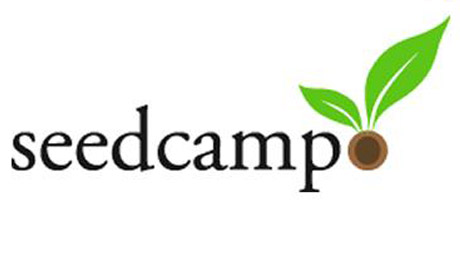By
our count, there are approximately 100 startup accelerators operating
across Europe today, with presently close to 140 active programs. Are
there too many accelerators in Europe – or not enough?
Hang
up a map of Europe on the wall. Throw a dart at it. If you’ve
managed to hit land, chances are pretty high that you’ve hit upon a
region where there’s an active startup business accelerator.
To
wit, there’s an ever-growing number of seed acceleration programs
popping up across Europe, to the extent where it’s getting
difficult to keep track of all of them. In fact, even doing a
headcount is a challenge.
It
doesn’t help that there are different types of business
accelerators, and even the definition of an ‘accelerator’ isn’t
set in stone. We gave it a shot anyway, and wonder out loud whether
there’s an over-abundance of startup accelerators operating in
Europe today – or vice versa.
Y
Combinator blazed a trail that has been walked by many, including in
Europe
Inarguably, Y
Combinator was
the first of its kind when it started in March 2005, and its success
has inspired many to follow into its footsteps, often by outright
copying its modi
operandi.
Perhaps
not a big surprise, but notable nonetheless: Europe’s telecom and
media companies are seemingly most keen to set up accelerators and
incubators of their own.
And
then, there’s a plethora of regional startup acceleration programs,
some private and some government-backed. A hopelessly non-exhaustive
list includes the likes of Startup
Wise Guys andBuildit (Estonia), Ignite100, Bethnal
Green Ventures, dotforge, Beta
Foundry and Oxygen (UK),Rockstart (The
Netherlands), OpenFund and The
Accelerator (Greece), Le
Camping and Nextstars(France), betaFACTORY (Norway), DCU
Ryan Academy’s Propeller Venture Accelerator and NDRC
Launchpad (Ireland), Black
Forest Accelerator, German
Silicon Valley Accelerator (Germany),TechPeaks, SeedLab and H-Farm
/ H-Camp (Italy), Huge
Thing and Gamma
Rebels (Poland), Startup
Sauna (Finland), SICS (Sweden), Startup
Yard and StarCube (Czech
Republic), StartupHighway(Lithuania), Beta-i (Portugal), Startup
Reykjavik (Iceland), Tetuan
Valley and SeedRocket (Spain), ZIP(Croatia), Eleven, LAUNCHhub and 3Challenge (Bulgaria), Idealabs and NEST’up (Belgium), Garage(Moldova), TexDrive and Farminers (Russia), ACME
Labs and iCatapult (Hungary), Eastlabs (Ukraine),Elevator, 8200
EISP and UpWest
Labs (Israel), Inovent, Etohum and Fit
Startup Factory (Turkey).
In
case we’ve lost you there: we’ve listed about 70 active startup
accelerators above, and by our count, that’s not even close to the
total number of accelerators operating in Europe today.
First
things first: what makes an accelerator?
Startup
accelerators are a relatively new, ‘modern’ breed of for-profit
business incubators, which typically attract small teams through an
open application process and provide a select number of fledgling
technology companies with seed funding, mentoring, training and more,
for a limited time.
While
anyone with an idea can theoretically apply to an accelerator, the
chances of actually getting in are very slim indeed: U.S.-based
accelerators like Y Combinator and TechStars boast application
acceptance rates between 1 percent and 3 percent.
Usually,
a program lasts about 3 months, though some accelerators’ programs
run longer, up to 6 months and even a full year for some. Your
average accelerator doesn’t charge for the privilege, but takes an
equity stake in participating startups, typically between 6 and 12
percent.
After
‘graduating’, startups are supposed to have used the capital,
mentorship and feedback to gradually evolve into a viable business,
or at least to a point where the team is able to convince more
deep-pocketed investors to make a bet on them.
Who’s
keeping track, anyway?
Let’s
take a look at the available resources out there to get an idea of
how many active startup accelerators currently operate in Europe.
In
March 2012, there was a noteworthy attempt to
create a comprehensive list of European accelerator programs
called Startup
Factories –
which grew out of an eponymous NESTA
research reportpublished
the year before – but it hasn’t been actively maintained, and
thus no longer gives us a full picture of just how many startup
accelerators there are in Europe.
Another
helpful but waning resource is Seed-DB,
founded by Jed Christiansen, a member of Google’s EMEA Channel
Sales team in London. Much like Startup Factories, Seed-DB offers a
great but hardly complete overview
of accelerators,
and efforts to keep it up-to-date seem to have dwindled in recent
times. In an email conversation, Christiansen tells me that this
boils down to how
one defines an
accelerator, but we think the Seed-DB list is missing out on quite a
few programs in Europe either way.
Earlier
this year, the European Commission set up a Startup
Europe Accelerator Assembly in
an effort to connect accelerators with policymakers, and to
strengthen the support environment for Web entrepreneurs in Europe.
While laudable, it’s a far cry from representative for the time
being: clearly, the forum could use more active members and
supporters from all across the EU to bring it up to speed.
In
the interest of being complete, there’s something called the Global
Accelerator Network, but it’s a rather selective
community and
filtering down to Europe currently shows a mere 8
startup acceleratorsthat
apparently meet the criteria.
That
leaves us without a clear answer, so Tech.eu decided to have a go at
it and come up with a new, comprehensive list of active startup
business accelerators in Europe.
Making
it count: how many startups accelerators are in Europe, and how many
are enough?
Using
the above definition of an accelerator as a guideline, we found that
there are currently approximately 141 active European acceleration
programs, although some are put on by the same accelerator in
different locations. Taking that into account, we ultimately listed
94 organizations that we would classify as startup accelerators
operating somewhere in Europe.
For
the sake of clarity: we included corporation-backed,
government-funded and vertical accelerators, as well as U.S.
accelerators with operations in Europe, and opted not to include
clear-cut company incubators or ‘startup studios’ such as Team
Europe or Rocket
Internet.
As
stated, there is a degree of subjectivity to the definition of
‘accelerator’. Consequently, there are many fine progras that do
not fulfil all specified criteria.
The
Israel office of Exodus Hub, for example, rents its space to
startups. Novelook, also situated in Israel, invests in an idea and
seeks the right entrepreneurs to become founders, rather than
focussing on established company. Bento doesn’t take any equity in
its companies. Latvia’s Eegloo doesn’t offer office space to the
startups, while the University of Surrey 100 Club is an angel
investment fund, with close ties to other programs, but does not
really run an in-house accelerator.
Furthermore,
there are many accelerator-like initiatives that do not fit all the
criteria for inclusion in the list. Organizations like Startup
Weekend and Startup Bus, mentioned above, are programs that last only
a few days, and are designed more as a platform for entrepreneurs to
meet, create ideas, and form teams for the future. Neither actively
invests in ‘graduates’.
Still,
if you think there’s an accelerator missing, please let
us know.
In
such a relatively small part of the world, a total of just under 100
active startup accelerators appears to be an extremely high number
and the number actually runs much higher if you define the concept
more loosely.
Still,
there are some who argue that there aren’t enough accelerators in
Europe, and that will likely never be, just like there could never be
enough business angel investors to go around. There’s something to
be said for that, as the possibilities for attracting early-stage
capital are scarce in many a European country or region, and
accelerators are one possible way of meeting founders’ needs.
Ultimately
though, the quality of the accelerator in question is what matters,
and whether entrepreneurs are better off joining them rather than
going it alone or by other means (e.g. crowd-funding). Next week,
we’ll go deeper into what differentiates accelerators from one
another, and add some industry perspectives from insiders to the mix.
But
let’s hear from you.
Do
you think 94 startup accelerators is far too high a number for
Europe? Or not enough?
Co-founder
and editor-in-chief of Tech.eu, with previous stints at The Next Web
and TechCrunch under his belt. Deeply in love with his family,
technology, traveling and Belgian beer.
This is a repost of a blog post that appeared on tech.eu website on November 29, 2013





















